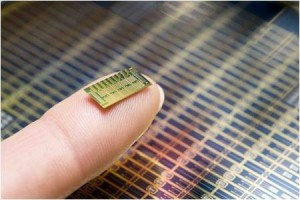If I were to ask you to name someone in your life that is described by the word eccentric, who comes to mind? Everyone has someone in his or her life that blurs the line when it comes to sanity, and can be described, for a lack of better words, as a little bit “off their rocker.” For me, that person is my grandpa. A high spirited and extremely social old man, he is constantly calling me to talk to me about his garden, to rant about the latest University of Arkansas sporting event, or to remind me that I need to cover up the camera on my laptop because the government is using it to spy on me. While his slightly paranoid notions constantly amuse me, I’ve begun to see how some of today’s advances in science appear to be a bit out of this world. The constant innovation and development of new technology has provided tools for medicine that seem like they belong in a sci-fi book or the ranting’s of a conspiracy theorist.
One such example is a technology that has the possibility to revolutionize the way we approach medicine. In many of the projects presented in class, students brought up issues of patient adherence to treatment plans as obstacles in designing a solution. Teams provided examples of having no way to check or confirm if patients were taking their medication and if so were patients doing so consistently, at the right time, etc. So, what if we could eliminate this problem of adherence to a medication plan all together?
A group of researchers at MIT are trying to do just that.
This team has designed a microchip, about the size of a scrabble piece, that can be preloaded with medication and implanted into the body with the option of being programmed to administer drugs at a given time, interval, and dose. This allows patients freedom from the burdensome medication schedules they usually adhere to, and gives doctors the ability to theoretically adjust or stop medication dosage remotely. Proven to be safe and effective in a study done in 2012, the company, microCHIPS, hopes to continue to improve the chip in order to be able to have it turn on and off remotely and improve structure of that hopefully it could remain in the body and deliver medication for up to sixteen years.

What implications does this innovation have on the future of medicine? First and foremost it offers the possibility for major improvements in the treatment of chronic illness that require constant medication and treatment. Having a built in system that eliminates a lot of the human variable of adherence provides the opportunity for more consistent care and better health outcomes.
The microCHIPS also present a variety of possible resources in preventative medicine. For example, can implanting a chip in a person at a high risk for allergic reaction be beneficial and effective further down the line when an emergency ensues? The possibility of arming high-risk patients against future potential medical problems increases opportunities for improvements in preventative care.
As we move forward in our examination of this product we are left with a variety of questions:
What other implications or applications could microchip produce?
Also, what possible complications, both medical and social, could arise from implanting a microCHIP with medication into the body?
Sources: http://www.cnn.com/interactive/2014/04/health/the-cnn-10-healing-the-future/?frame=1&hpt=he_c1

